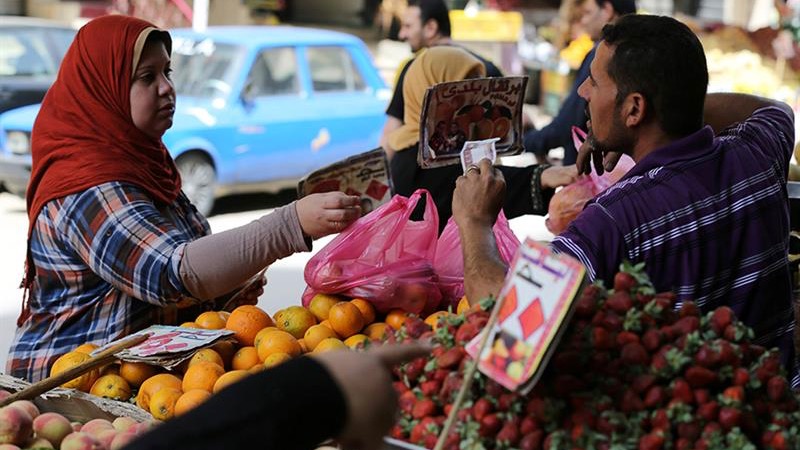A recently published joint study conducted by Oxfam and Action Aid claims that the total windfall profit of the world’s 722 top companies crossed USD 1 trillion for the second consecutive year in 2022. The study notes that this figure, which is higher than the GDP of a majority of countries in the world, reflects an “obscene” and “immoral” quest for higher profits by the rich, who have exploited the global crisis of energy and food price inflation and higher interest rates in the last two years caused by multiple factors including the COVID-19 pandemic and the war in Ukraine.
The study recommends that governments impose a windfall tax on these excessive profits and use the money raised to carry out social security programs to tackle a range of issues including the cost of living crisis, poverty, hunger, and climate change.
Windfall corporate profits
As per the study, “windfall profits are defined as those exceeding average profits [earned by the said corporations in the previous four years] in 2017-2020 by more than ten percent.” The study is based on the calculation of data published by Forbes magazine about the world’s top 2,000 companies.
According to the findings, the world’s top 722 companies, which includes giants in energy, food, banking, pharmaceuticals, etc., raked in a total profit of USD 1.09 trillion in 2021 and USD 1.1 trillion in 2022. The study notes that the rates of profits of the said companies in 2021 and 2022 was on average 89% higher than the average profits made by them in the previous four years.
Energy companies were the biggest beneficiary of rising prices as 45 energy firms earned an average of USD 237 billion in windfall profits in 2021 and 2022, which created 96 new energy billionaires with a total wealth of USD 432 billion.
As per the study, at a time “when 9,000 people die of hunger every day,” 18 global food and beverages companies recorded an average of USD 14 billion in windfall profits in 2021 and 2022 and 42 major retailers and supermarkets made an average windfall profit of over USD 28 billion.
When the majority of people in the Global South were struggling to access basic health care, 28 pharmaceutical companies earned an average of USD 47 billion in 2021 and 2022. The study also noted that nine aerospace and defense enterprises earned an average of USD 8 billion.
“Greedflation”
The rise in the profit of food and beverage corporations comes amid an unprecedented “cost of living” crisis in the developed world and at a time when soaring food prices have pushed millions of people towards hunger in the developing countries of Africa, Asia, and Latin America.
Global food prices rose by an average 14% in 2022, with some countries, such as Turkey, Egypt and Pakistan, recording even higher surges.
There is enough evidence to argue that large companies have used the crisis situation due to the pandemic and the war in Ukraine to increase their profits by artificially raising prices—a phenomenon termed as “greedflation” by some.
The International Monetary Fund (IMF) recently published a study which said that “corporate profits account for nearly half the increase in inflation in Europe over the past two years.”
The rise in profits also coincides with degradation of wages and conditions of work. According to Oxfam, the “top paid CEOs across four countries enjoyed a real term 9 percent pay hike in 2022, while workers’ wages fell by 3 percent.”
“One billion workers in 50 countries took an average pay cut of USD 685 in 2022, a collective loss of USD 746 billion in real wages compared to if wages had kept up with inflation,” the study noted.
Amitabh Behar, Oxfam’s international interim executive director, has said that “big business is gaslighting us all—they are hiking prices to make monster profits, plundering people under the cover of a polycrisis.”
The study proposes the introduction of windfall taxes across the board to “end the racket, where rich shareholders are rewarded at the expense of everyone else.”
Higher and progressive windfall tax is necessary
Calling these excessive rates of profits “immoral” at a time when millions of people “across the world are struggling to pay their bills and feed their families,” Katy Chakrabortty, Oxfam’s head of advocacy, called for immediate government action to check the unfair profiteering.
“People are sick and tired of corporate greed. It’s obscene that corporations have raked in billions of dollars in extraordinary windfall profits while people everywhere are struggling to afford enough food or basics like medicines and heating,” said Behar.
The study recommends that governments impose a windfall gains tax between 50 to 90% on corporations. It calculated that such a tax on the 722 top corporations would raise anywhere between USD 523 billion to USD 941 billion for both 2021 and 2022.
As an example, the study notes that “governments could have increased global investments in renewable energy by 31% had they taxed at 90% the massive windfall profits that oil and gas producers funneled to their rich shareholders last year.”
The money raised through the windfall gains tax could also be used to help people facing poverty, hunger, health crisis, or losses due to climate change.
According to Chakrabortty, taxes on the windfall profit could even help solve the hunger crisis in East Africa, where one person is likely to die of hunger every 28 seconds as estimated by Oxfam. Chakraborty stated that profits earned by 18 food companies in 2021 and 2022 was more than “twice the amount needed to cover the shortfall in life saving assistance to tens of millions of people facing hunger” in the region.





